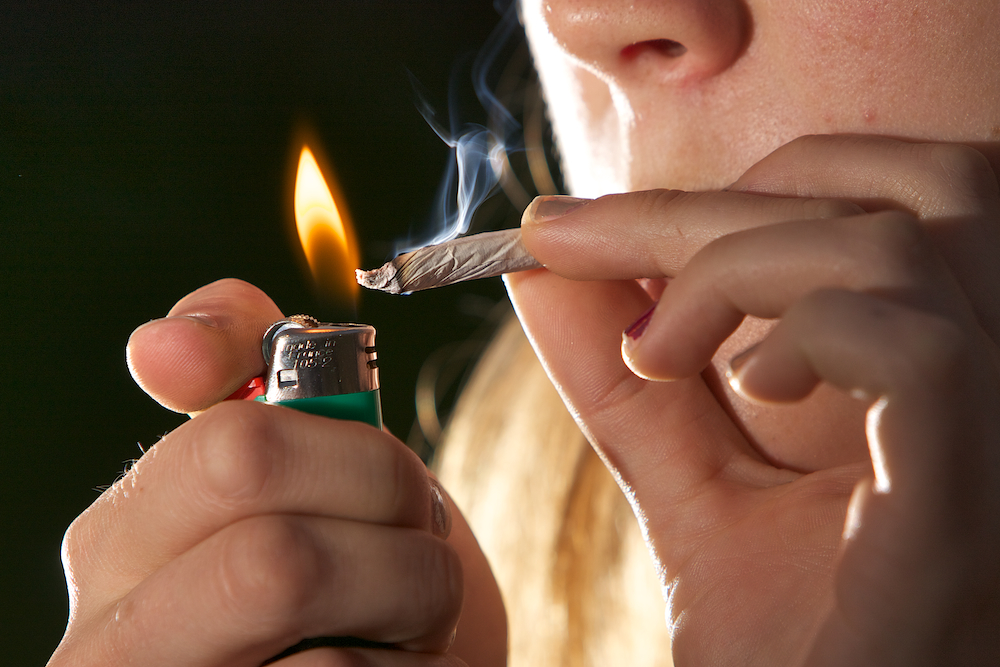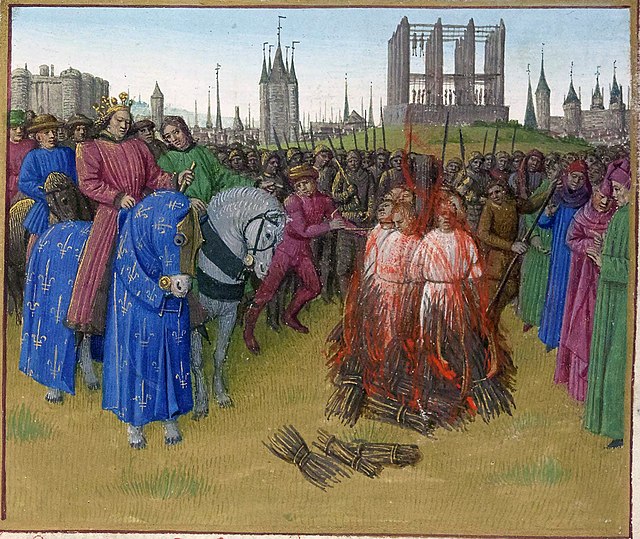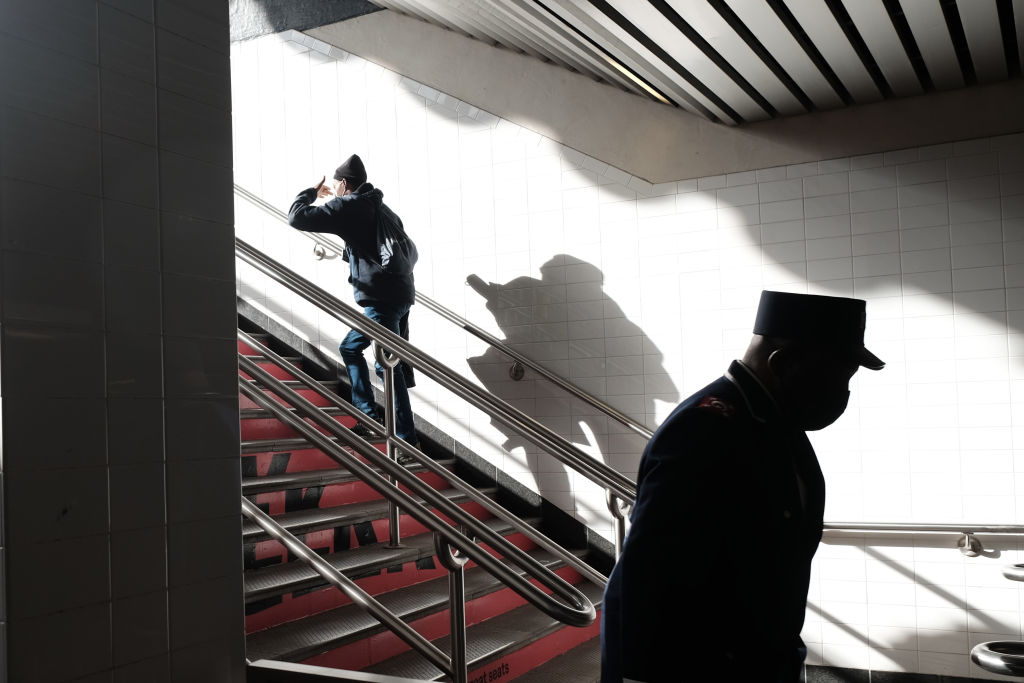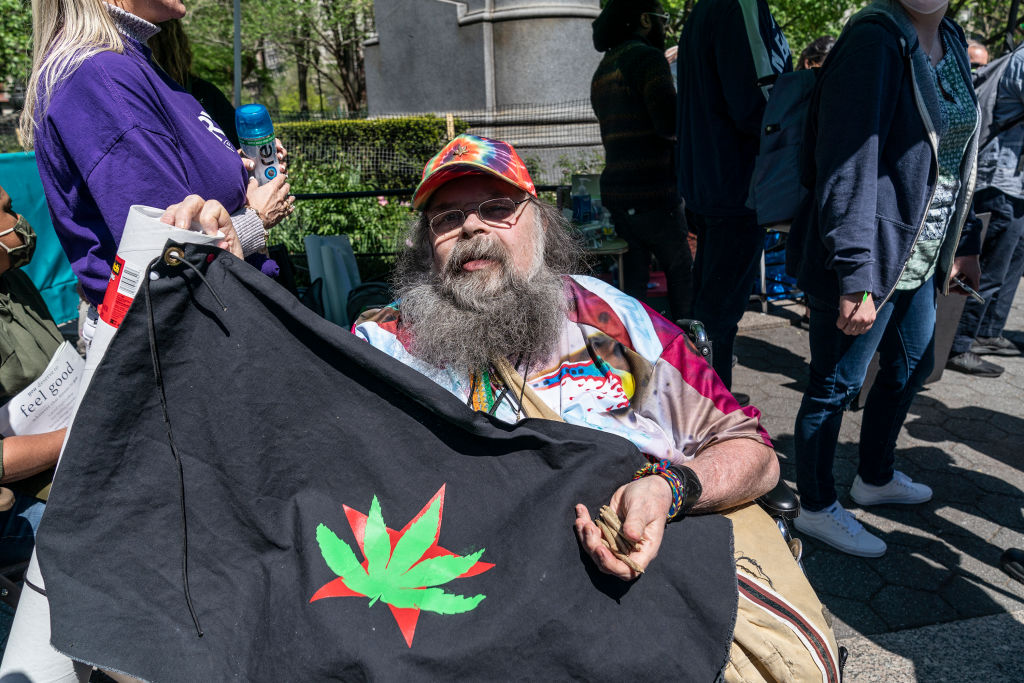No future awaits those who rage against family, work, and community.
The Marijuana Myth

Biden’s pardon of federal pot possession cases is a smokescreen.
With the midterms bearing down and the post-George Floyd crime wave still underway, President Biden and his fellow Democrats face a dilemma: Continue hammering the theme that law enforcement is racist or position themselves as guardians of law and order?
Innate inclination won out again last week. Biden announced that he was pardoning all individuals who have ever been federally convicted of marijuana possession. His reason for doing so, Biden said, was to “right” the racial “wrongs” that the criminal justice system has allegedly perpetrated. “While white and Black and brown people use marijuana at similar rates, Black and brown people are arrested, prosecuted and convicted at disproportionately higher rates,” Biden said in a video.
This claim—equal marijuana use, unequal criminal justice treatment—has been a cornerstone of the Left’s war on cops for decades. It is routinely trotted out as Exhibit A in the Left’s narrative about racist policing; it got an added boost from Michele Alexander’s disastrously influential book, The New Jim Crow.
Predictably, the New York Times regurgitated the equal-use claim in its coverage of the Biden marijuana pardons: “While studies show white and Black people use marijuana at similar rates, a Black person is more than three times as likely to be arrested for possession than a white person, according to a report from the ACLU that analyzed marijuana arrest data from 2010 to 2018.”
The significance of the equal use claim extends beyond the war on cops, however. It is part of a larger narrative that denies both the existence of significant racial differences in culture and behavior and the role played by those differences in explaining socioeconomic disparities. It is worth assessing the equal use claim against the data, therefore, since a worldview hangs upon it.
Historically, marijuana use and culture has been more embedded in black communities than in white, as twentieth-century chronicles of urban black life by Claude Brown, Richard Wright, W.E.B. Du Bois, and others make clear. That disparity continues today, despite the flower power revolution that created generations of Grateful Dead potheads. Blacks comprise one-third of all treatment admissions nationally for marijuana abuse, though they represent only about 13 percent of the nation’s population. Among cannabis users, blacks have a nearly 70 percent higher rate of cannabis dependence than whites (16.82 percent v. 10.01 percent).
Cannabis is the illicit drug for which black drug abusers are most frequently treated (29 percent of all drug treatments), according to a 2013 U.S. Treatment Episode Data Set compiled by the Substance Abuse and Mental Health Services Administration. By contrast, 12 percent of whites in drug treatment were there for cannabis abuse.
A 2016 study by Washington, D.C.’s Department of Health found that there were 38 times more blacks than whites in treatment for marijuana disorder. The rate of marijuana use in D.C. was 62 percent higher for blacks than for whites.
The journal Drug and Alcohol Dependence has called for research into the cultural norms that lead to such higher rates of cannabis abuse disorders among blacks.
As for drug use more generally, from 2017 to 2019, the rate of treatment admissions for substance abuse disorder was nearly 58 percent higher for blacks than for whites (85.5 per 10,000 population, compared to 54.2 per 100,000).
Drug abuse data is a more reliable indicator of drug use than self-reported surveys. Adult surveys exclude prisoners, street vagrants, and other individuals not tied to a stable home; school surveys exclude dropouts. Those excluded populations are precisely the ones with higher rates of drug use; if blacks are overrepresented in those populations, which they are, their rate of drug use will be underreported.
A core claim, then, of the New Jim Crow anti-cop Left is not supported by the evidence. The superstructure that has been built up around that claim is equally detached from reality.
Even if marijuana use and abuse were spread equally among black and white populations, possessing a small amount of marijuana lands no one in federal or state prison, absent more significant criminal activity, as even radical prison abolitionists are increasingly willing to admit. Marijuana possession convictions are usually the result of plea bargaining down from more serious charges, whether drug trafficking or other felonies. In 2013, over 91 percent of federal marijuana possession convictions came from arrests made at the border. The median quantity of marijuana possessed by those border offenders was over 48 pounds. That load would make for one very big blunt, but it is not likely that the possessors intended to smoke their suitcases of pot themselves. Rather, U.S. attorneys were charging traffickers with the easier-to-prove possession offense.
Away from the border, marijuana possession arrests (now a thing of the past) were usually made during the investigation of more serious crime. No police officer sets out to arrest someone for the possession or use of recreational weed. Instead, if the police stop someone who appears to be casing a target or hiding a gun and they discover marijuana on him, they may use that marijuana possession to summons him or to bring him in to the station house. Even so, state convictions for marijuana possession have been rare—0.3 of one percent of state prisoners had low-level marijuana possession as their most serious offense, according to a 2008 Bureau of Justice Statistics report.
Given the concentration of street crime in black neighborhoods, officers make more street investigations there and thus will be more likely to uncover marijuana, especially if racial norms are (or were) different around outdoor use and possession.
Marijuana possession convictions—or indeed, any type of drug enforcement–is not what creates racial disparities in the prisoner population, despite Michelle Alexander’s “New Jim Crow” argument. If all drug prisoners in state prisons (which is where the vast bulk of the nation’s prisoners are incarcerated) were removed from the rolls, the proportion of black prisoners would not change. Violent crime and property offenses drive the black incarceration rate, not drug enforcement.
Biden’s indictment of the racial “wrongs” in marijuana enforcement, like the entirety of the New Jim Crow thesis, ignores the fact that the impetus for stricter drug enforcement has always come from black communities themselves, as research by Randall Kennedy, Michael Fortner, and James Forman has documented. During police-community meetings in high crime neighborhoods, I have routinely heard complaints about the smell of marijuana in hallways and about the youth trespassing in building lobbies smoking weed. If the police ignore those heartfelt requests for enforcement because Biden and the ACLU tell them that they would be racist to act on the complaints, the police would deny the law-abiding, hardworking inhabitants of crime-ridden areas the government protection that they deserve.
That indifference appears to be what the Left seeks, however. After Biden’s pardon announcement, Cook County State’s Attorney Kim Foxx, a member of the George Soros progressive prosecutor club, announced that the White House had taken a “momentous step toward justice and equity.” It has been “long understood,” Foxx said, that the “war on drugs was a war on Black and Brown communities.” Pennsylvania Lieutenant Governor John Fetterman, in a hot race for the U.S. Senate, lauded Biden’s pardons as a “massive step towards justice” (the “racial” in “racial justice” being so obvious as to not need stating).
If reenslaving blacks is the point of drug enforcement, Biden, Foxx, and Fetterman would have a hard time explaining why rural white counties have the most draconian arrest and prosecution policies.
Even though federal marijuana possession convictions are a proxy for serious dealing, there is at present no one even serving time in federal prison for marijuana possession. In 2017, only 92 people were sentenced on federal marijuana possession charges, out of nearly 20,000 drug convictions, reports the New York Times. The Biden marijuana initiative is intended to remind the Democratic base that the party remains committed to the systemic racism narrative, recent gestures about “refunding the police” notwithstanding.
But the black community suffers disproportionately from the effect of marijuana and other drugs on its children and on its broader social capital, an effect that results from drug use itself, not from drug criminalization, as the legalizers maintain. It was that public health reality that drove the black war on drugs. Denying that reality and insisting that drug enforcement is about white supremacy are not blows for racial justice; they are simply means to preserve an ideology of resentment and hatred.
The American Mind presents a range of perspectives. Views are writers’ own and do not necessarily represent those of The Claremont Institute.
The American Mind is a publication of the Claremont Institute, a non-profit 501(c)(3) organization, dedicated to restoring the principles of the American Founding to their rightful, preeminent authority in our national life. Interested in supporting our work? Gifts to the Claremont Institute are tax-deductible.
New York City’s return to “Broken Windows” policing is a window into the politics of public safety.
Legal marijuana makes America dumber and more violent.



